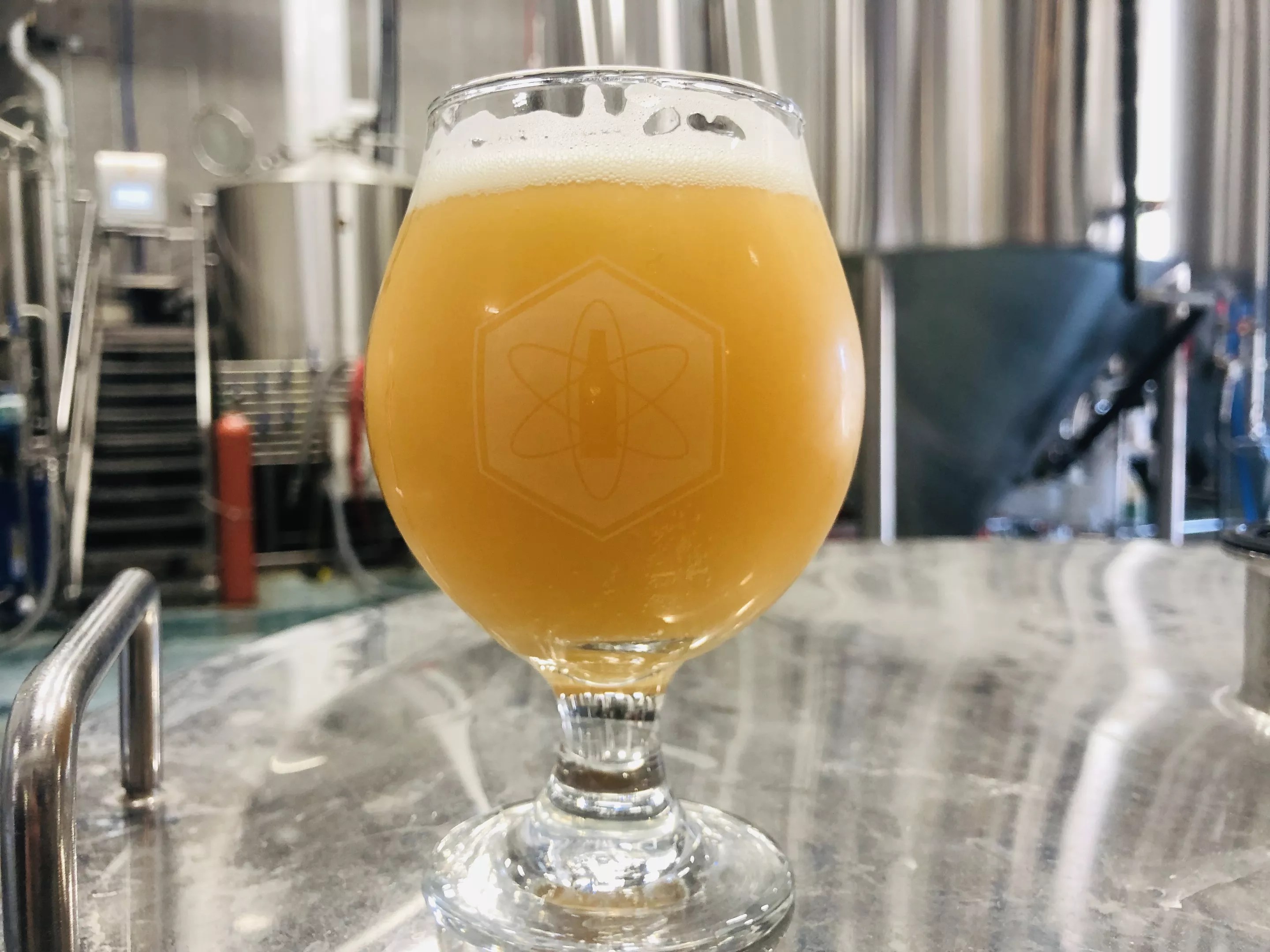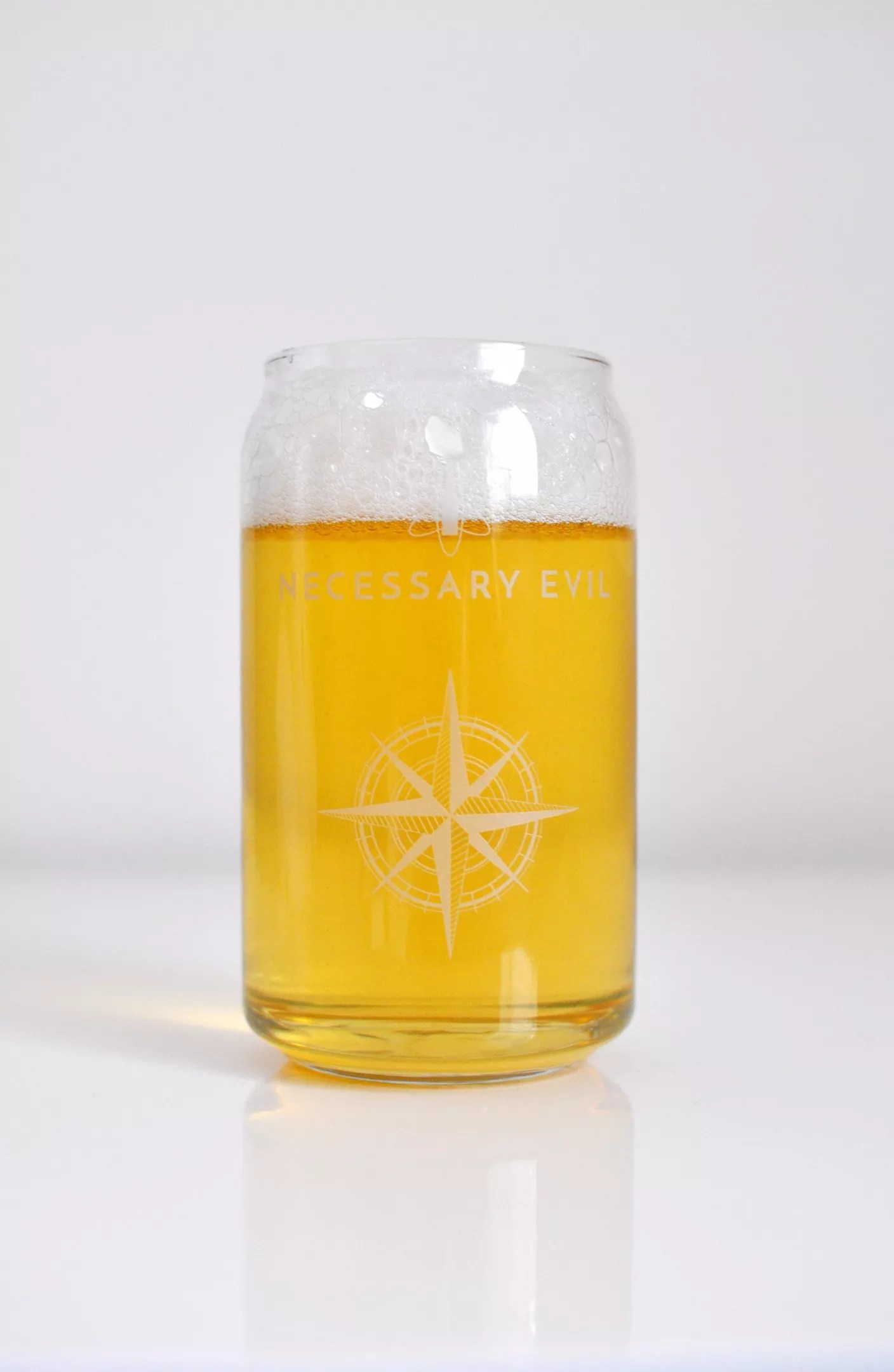
Michael Thacker

Audio By Carbonatix
I love Manhattan Project Beer.
I keep a stash of their impeccably made, ultra-drinkable pilsner in my fridge. I chat about the beer business with one of its founders. Every few weeks, my girlfriend and I stand in front of the coolers at Central Market, awed by all the choices, then walk out with yet another six-pack of Manhattan Project.
But a few months ago, a friend of mine asked why they’re named that. And the only reply I could think of was, “Because they don’t have any Japanese friends.”
The craft beer industry has a history of edgy names. But naming your product after the most horrific instrument of mass murder in history is unusually risky. Manhattan Project has largely stuck to scientific names that honor the academic side of the story, plus “Hoppenheimer,” an undeniably good pun. My beloved Necessary Evil pilsner is a bit more questionable.
And then there’s Bikini Atoll, a gose named after the Marshall Islands nuclear test site.
Our government forced Bikini residents to move elsewhere before testing, but according to a study published by the National Institutes of Health, fallout from 20 American nuclear tests still contaminated inhabited islands nearby. Infants, in particular, were exposed to stunning amounts of radiation. The paper estimates those tests directly caused at least 170 cancer cases that would not have naturally occurred.
Another paper found that Bikini itself is, to this day, more radioactive than either Chernobyl or Fukushima.
Earlier this month, Marshall Islanders found out about Dallas’ most curiously-named beer, and they are is displeased. The country’s government issued a press release described “a great deal of outrage … the Manhattan Project Beer Company did not consult with the Bikini people nor ask for permission to make money off the use of their homelands.”
Manhattan Project has issued a single defensive statement, several hours before the statement by the Marshall Islands government, and declined to comment further, adding it has received death threats.
“Our beer named Bikini Atoll was not created to mock or trivialize the nuclear testing that took place on the Marshall Islands,” the statement reads. “Through our brand and naming, we are creating awareness of the wider impacts and implications of the United States’ nuclear research programs and the pivotal moment in world history that is often forgotten … We will take no further action in this matter.”
Let’s take that statement piece by piece. First, Manhattan claims they don’t want to “mock or trivialize” nuclear testing. The Marshall Islands’ secretary of health and human services, Jack Niedenthal, has replied, “Unfortunately, that is exactly what your product does.

Manhattan Project isn’t just a beer.
Misty Sanford
“The people of the Marshall Islands have one of the highest cancer rates in the world, all of our families can tell a personal cancer story,” Niedenthal says.
Manhattan Project claims its goal is to “create awareness” about the consequences of America’s nuclear program. That sounds, frankly, made up. Certainly their brand creates awareness of certain words and names. But it offers no viewpoint, opinion or even context. The can of Bikini Atoll doesn’t mention victimized locals. Marketing materials for Necessary Evil don’t delve into the ethical debate over using the atomic bomb.
One conscientious Facebook user, Derrick Lathrop, commented that the beer can designs inspired a conversation with his kids about American history and spurred him to learn more. But that is more likely to be the result of Lathrop’s curiosity and good parenting than the beer’s branding.
As another user, Eve Smith, writes, “You are not bringing awareness to a community … if you do not have the history of the name on the can or the bottle or the website.” The only people who have been creating awareness, it seems, are Lathrop and the Marshall Islands government.
Put simply, Manhattan Project is digging itself into a hole here. They named a beer after a bullying government action that spiked cancer rates for a whole country, they put zero effort into their alleged “awareness,” and now they expect people to simply agree that the incident is fair game for beer names. But by that logic, as some have pointed out, Manhattan Project could name a beer Hiroshima.
Honestly, they shouldn’t bother. People do need to know about what America did to the Marshall Islands. But a can of beer is not the same as a history class.
Nuclear weapons are not fun or pleasant. Beer is very fun and very pleasant. That’s always been the dissonance in the Manhattan Project name, and that explains why its most satisfying branding focuses on the scientists, who were at least a step removed from the wartime decision to drop the bombs.
In the end, this issue is very simple. It all comes down to respect.
The good people (they really are good people) at Manhattan Project Beer can choose to respect the wishes of the Marshall Islanders. Or they can choose to disrespect those wishes. For the sake of their reputations, of Dallas’ reputation and of my refrigerator, I hope they choose respect.
This article has been updated after publication to correct the chronology of press statements by Manhattan Project and the Marshall Islands.